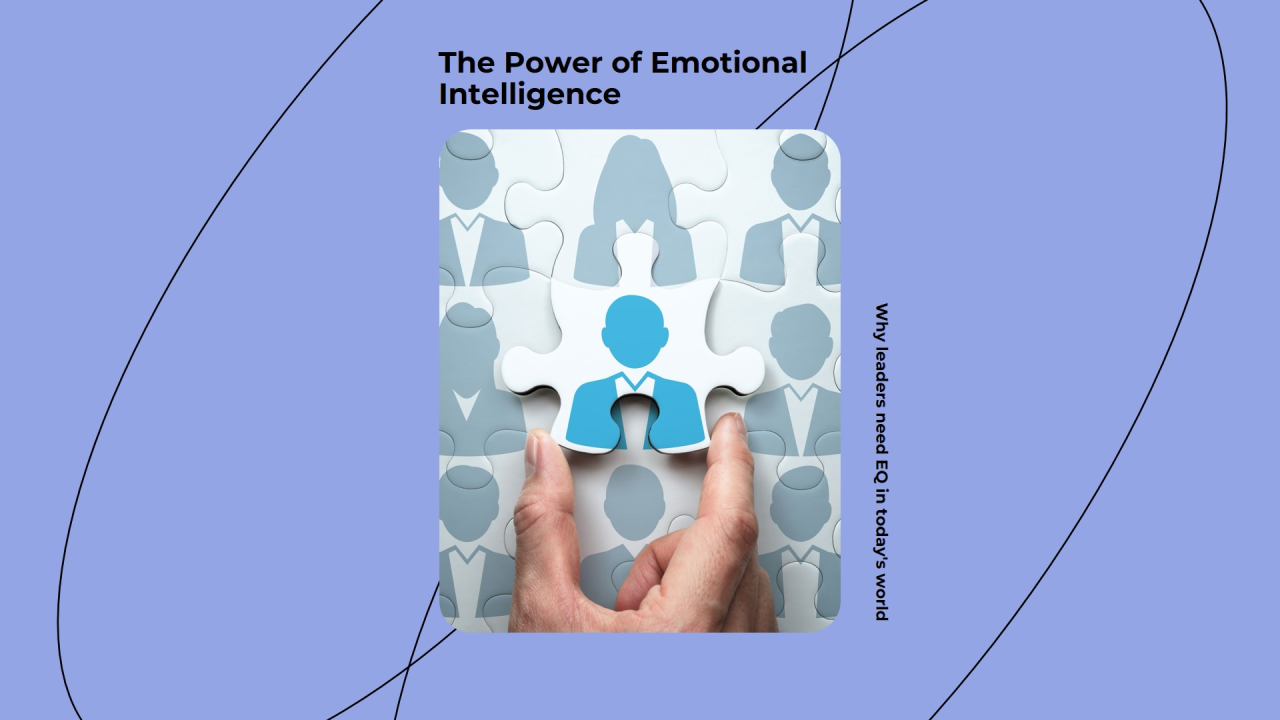Imagine… You’re leading a crucial brainstorming session… ideas are flying, tensions are high… and one team member just made a suggestion that falls flat… Frustration fills the room, threatening to derail the entire process. Suddenly, your leader steps in! With a calm demeanor and a touch of humor, they acknowledge the frustration, validate the suggestion, and gently guide the conversation back on track.
This, my friends, is the power of emotional intelligence (EQ) in action. In today’s dynamic business landscape, where collaboration, innovation, and navigating complex emotions are crucial, EQ has become a critical leadership skill, perhaps even surpassing raw intellect (IQ).
A study by TalentSmart revealed a staggering statistic: Emotionally intelligent leaders outperform those with low EQ by a whopping 80% in sales results. That’s right, EQ isn’t just about being “nice.” It’s about understanding your own emotions, managing them effectively, and being adept at navigating the emotional landscape of your team.
So, why is EQ so important for businesses and leaders alike? Here’s a breakdown of the measurable benefits:
- For Organizations: Strong emotional intelligence in leaders fosters a positive work environment. A study by the Hay Group found that emotionally intelligent leaders create a climate of trust and respect, leading to a 20% increase in productivity. Happy, motivated employees translate to better results, period.
- For Leaders: Leaders with high EQ make better decisions. Research by Rutgers University found that emotionally intelligent leaders are more adept at managing stress and staying calm under pressure, allowing them to think clearly and make sound choices, even in challenging situations.
But, the benefits go beyond numbers…
Emotionally intelligent leaders inspire loyalty and dedication in their teams. They build strong relationships, foster open communication, and create a sense of belonging. This, in turn, leads to lower employee turnover, a crucial advantage in today’s competitive talent market.
The Good News?
EQ is a skill that can be learned and honed. As L&D professionals, we have the power to equip leaders with the tools they need to become emotionally intelligent. Through training programs focused on self-awareness, empathy, and effective communication, we can help them unlock their full potential and empower their teams to thrive.
Comment below, DM me or email at Adnan@Spearhead-Training.com to hear more from me on this topic and training solution for your teams.
Few quick tips to be well on your way to becoming a more emotionally intelligent leader:
- Practice Self-Awareness: Take a moment each day to check in with yourself. How are you feeling? What triggered those emotions? Journaling or mindfulness exercises can be helpful tools.
- Become an Active Listener: Pay close attention to what others are saying, both verbally and non-verbally. Ask clarifying questions and avoid interrupting.
- Embrace Feedback: Don’t shy away from constructive criticism. See it as an opportunity to identify areas for growth in your emotional intelligence.
- Develop Empathy: Try to see things from other people’s perspectives. Consider their emotions and motivations.
- Practice Healthy Emotional Regulation: When faced with strong emotions, take a deep breath and count to ten before reacting. Learn healthy coping mechanisms for stress management.
Remember, EQ is a journey, not a destination. By incorporating these tips into your daily routine, you’ll be well on your way to becoming a more emotionally intelligent leader.
Final words…. In today’s world, where the human touch is more important than ever, EQ is the secret weapon businesses need to navigate challenges, inspire innovation, and achieve sustainable success. Let’s make it a priority.


Leave a Reply